The Rogue Scholar science blog archive has supported ORCID and DOI identifiers for linking to authors and blog posts since its launch. Starting this week, these two identifiers can also be used to navigate within the Rogue Scholar archive.

ORCID
ORCID, which stands for Open Researcher and Contributor ID, is a free, unique, persistent identifier (PID) for individuals to use as they engage in research, scholarship, and innovation activities.
ORCID for Researchers
One third (32.71%) of science blog posts in Rogue Scholar are linked to the ORCID of at least one of their authors. Searching Rogue Scholar by ORCID returns a list of all blog posts authored by that person, e.g. using my ORCID:

Starting this week, clicking on an author name with an ORCID icon in Rogue Scholar will return all records (co-)authored by that author:
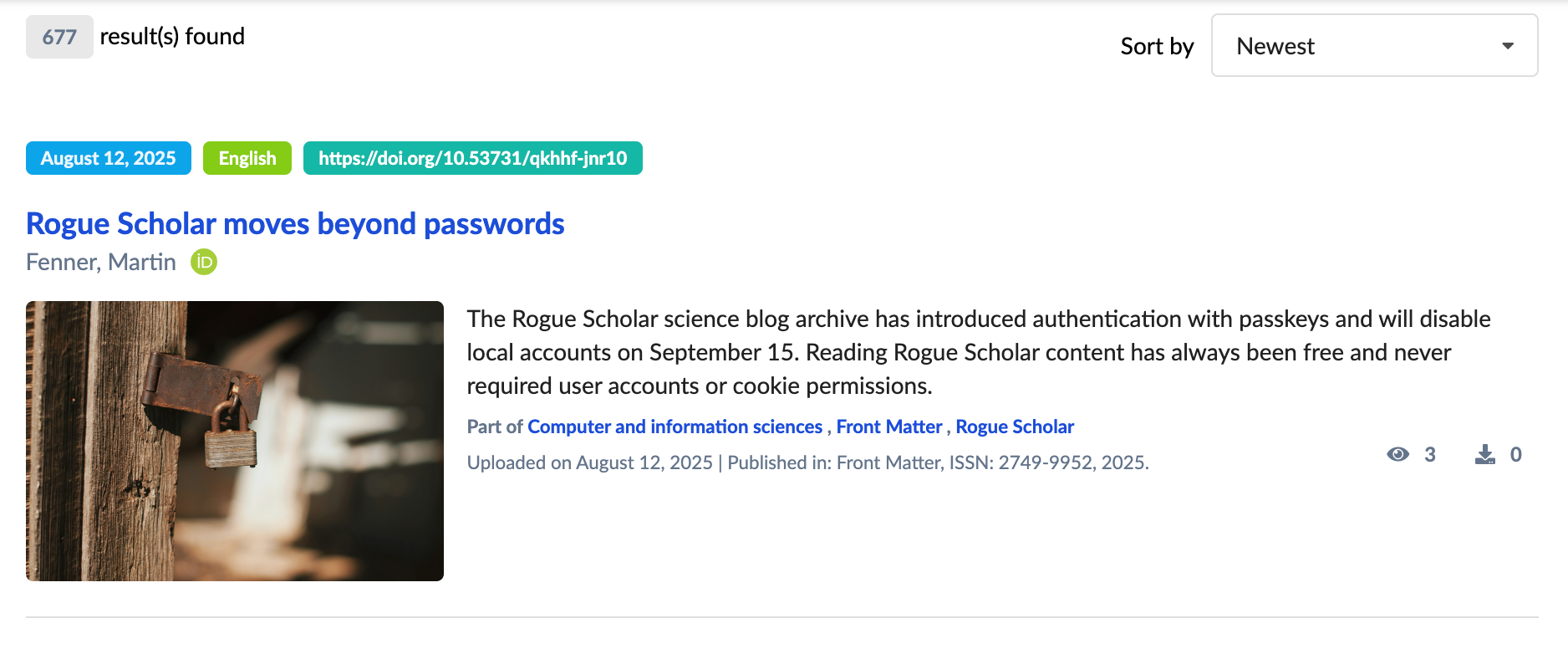
This feature works in both search results and single record views. For authors without an ORCID (e.g. organizational authors), Rogue Scholar continues to return a search result by name, which is the built-in behavior of the InvenioRDM repository platform. Clicking on the ORCID icon continues to link to the ORCID profile page for that author.
DOI
All blog posts in Rogue Scholar have a Digital Object Identifier (DOI) assigned to them to uniquely identify the blog post and include relevant metadata. These metadata can optionally include references (currently 5.04% of Rogue Scholar posts) that again can use DOIs. Citations of Rogue Scholar posts (currently 1387 citations of 763 blog posts) using their DOI are also shown in the Rogue Scholar record.
Starting this week, clicking on the title of a DOI reference or citation in the Rogue Scholar record returns all records using that DOI as identifier, reference, or citation, with the Rogue Scholar record on top of the list.
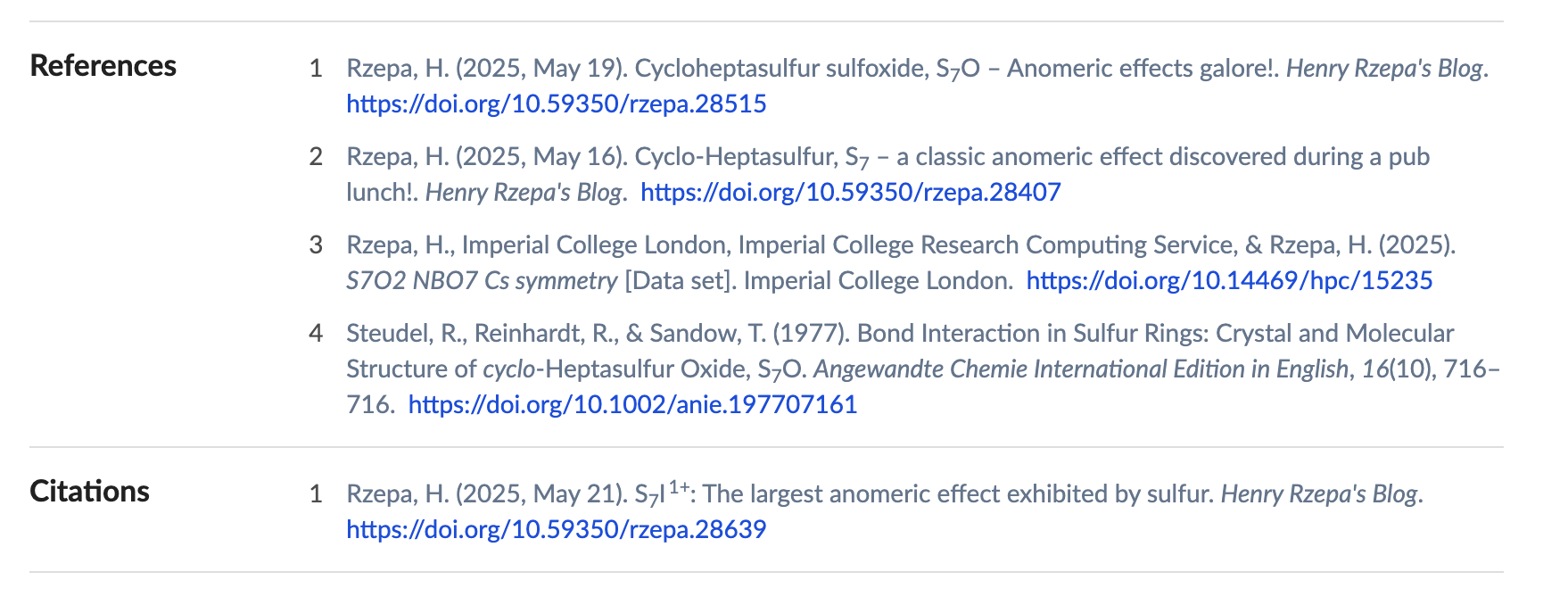
Clicking on the title of the citation returns a search result with the cited Rogue Scholar post and also the citing post. Clicking on the DOI link continues to link to the scholarly work with that DOI.
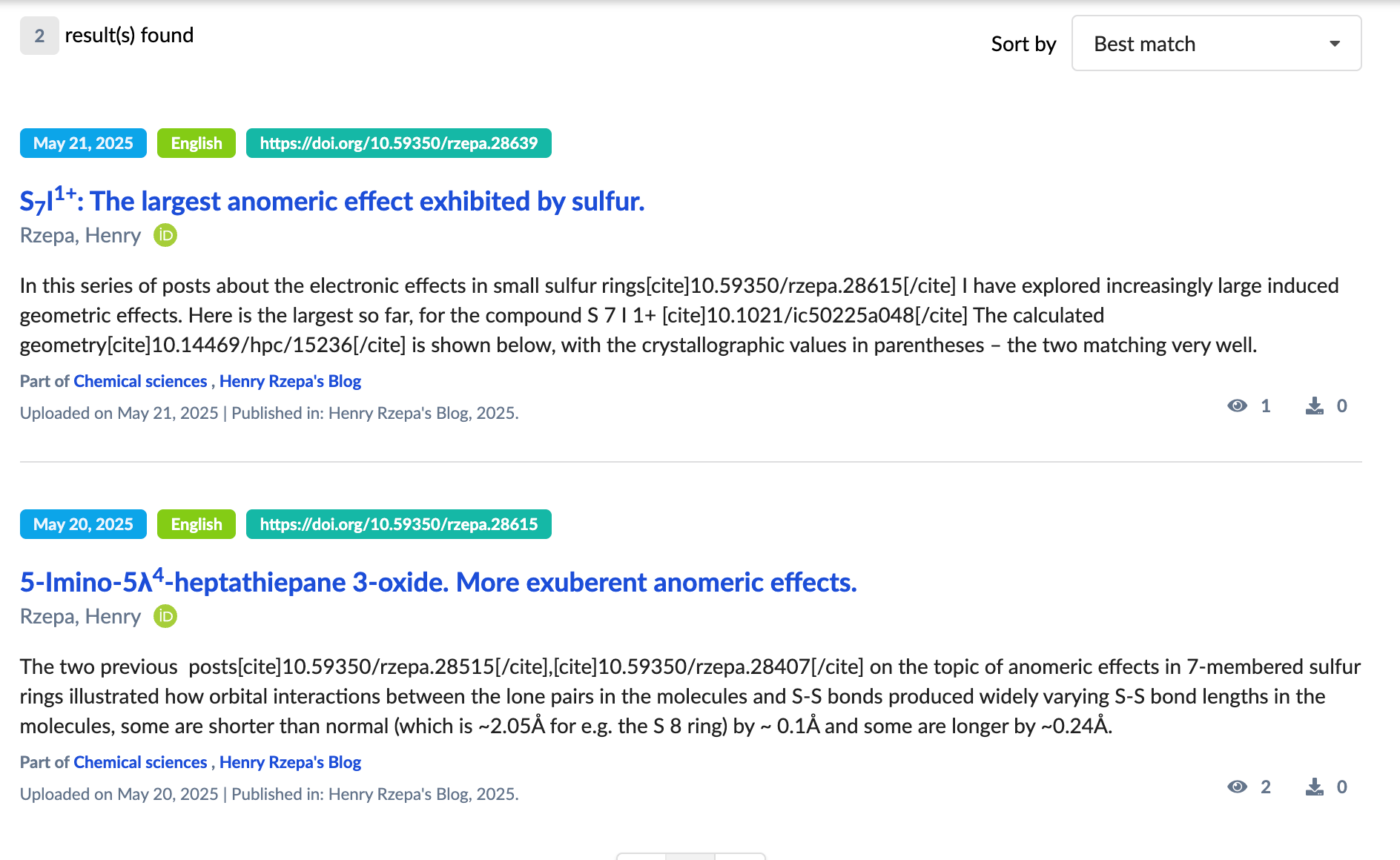
This also works in the case of references or citations that are not Rogue Scholar posts (most of them):
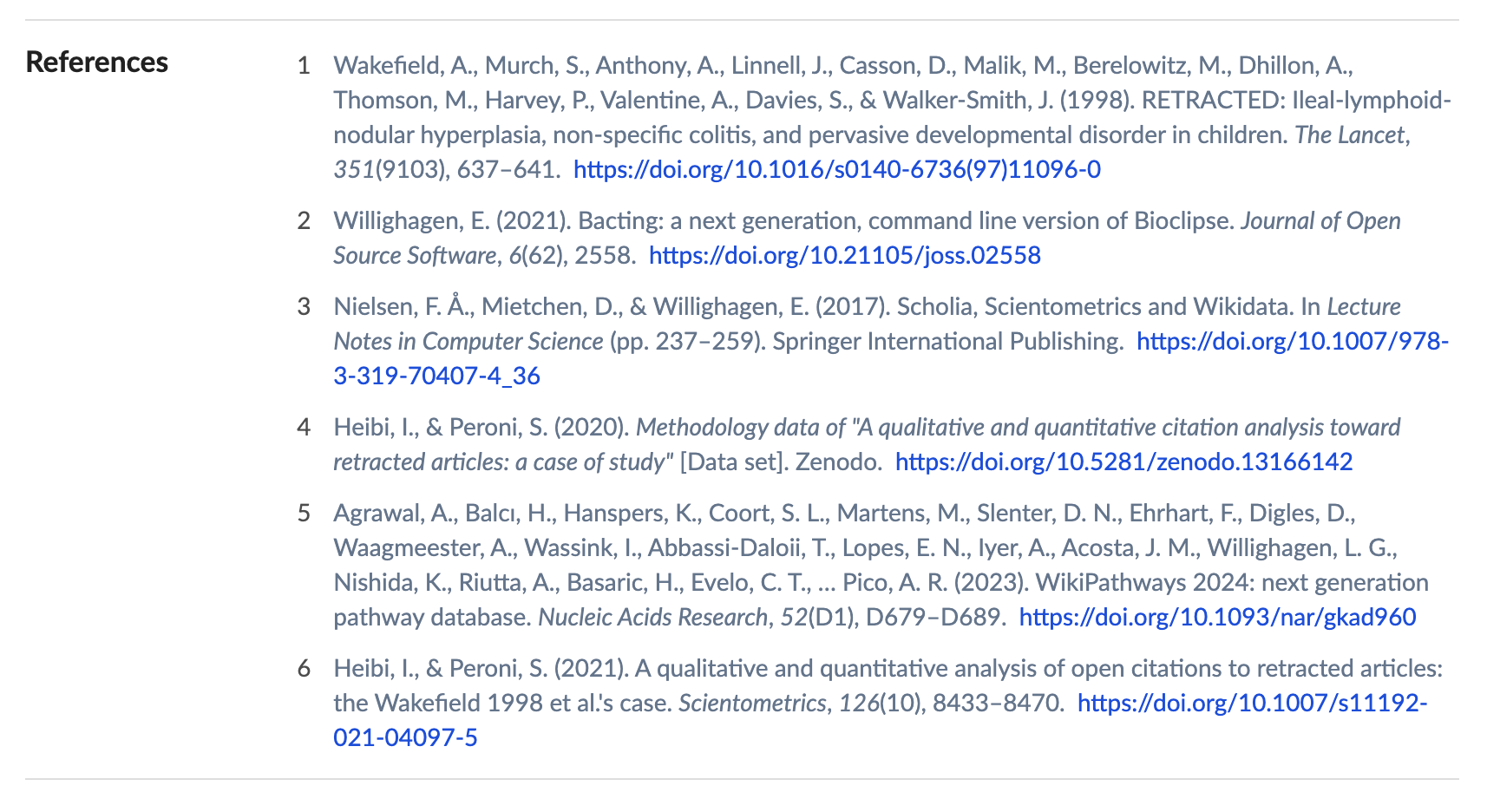
Clicking on the title of reference #6 returns a search result with all Rogue Scholar records referencing or citing that DOI:
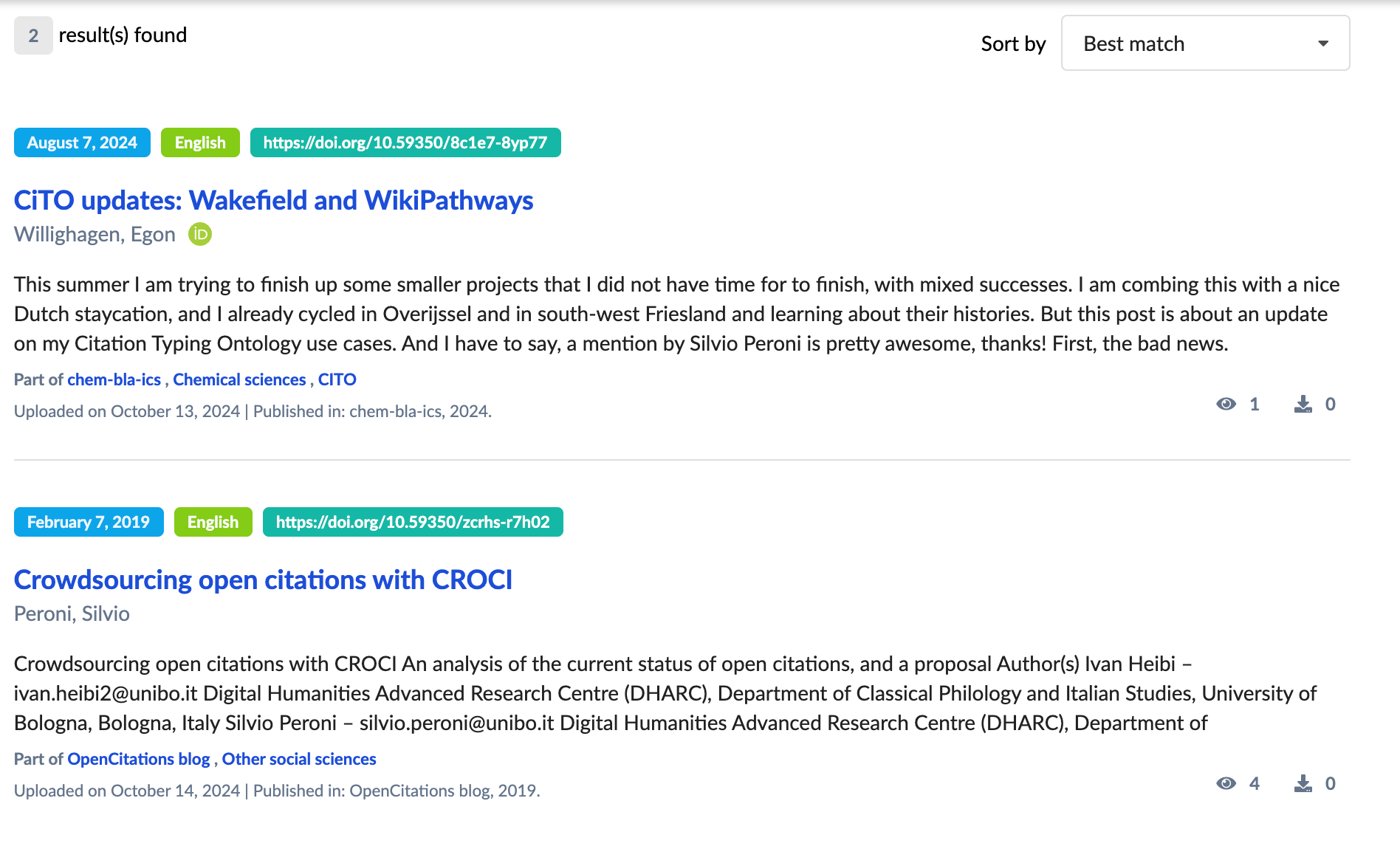
The first search result is the record where I clicked the link. The second search result is another Rogue Scholar blog post referencing the same Scientometrics paper.
Implementing DOI linking within Rogue Scholar poses an interesting user interface challenge. I decided to always return search results instead of directly linking to the Rogue Scholar record. By including references and citations in the search results, Rogue Scholar will always return at least one result, but may show more Rogue Scholar records referencing the same blog post or other scholarly work.
This additional functionality around Rogue Scholar references hopefully encourages more Rogue Scholar bloggers to include formal references with their posts. My goal for 2026 is to have 10% Rogue Scholar posts include references (currently 5.04%). Including formal references in blog posts is straightforward, but so far has not been a best practice. Some Rogue Scholar blogs already have high percentages of posts with references, including Research Group Information Management @ Humboldt-Universität zu Berlin (40 posts, 75%), Henry Rzepa's Blog (518 posts, 61%), or chem-bla-ics (499 posts, 39%), and this blog (590 posts, 33%).
Please use Slack, email, Mastodon, or Bluesky if you have any questions or comments regarding Rogue Scholar ORCID or DOI linking.
References
Fenner, M. (2025, August 4). Rogue Scholar citation tracking launches to production. Front Matter. https://doi.org/10.53731/zyg15-qv911


